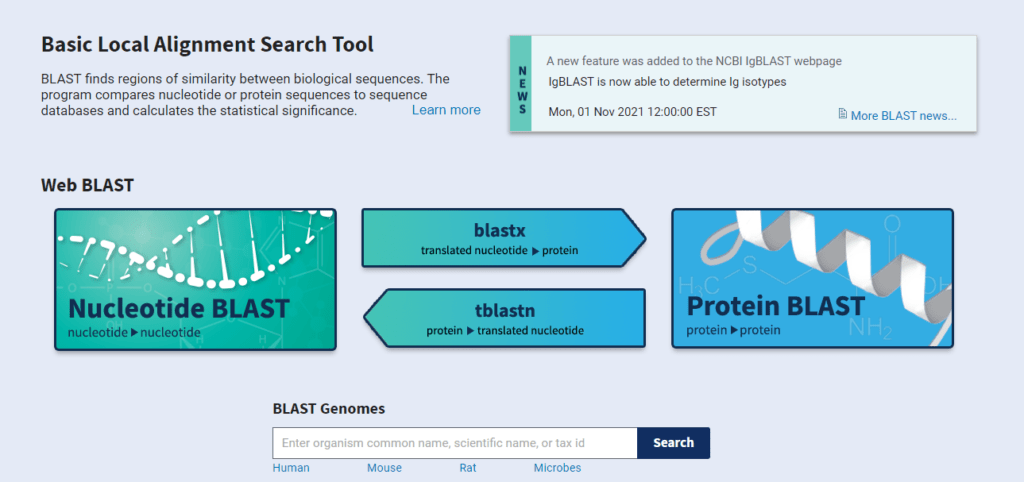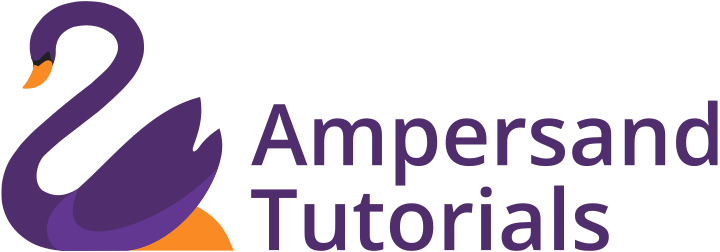Learn WHAT IS BLAST
BLAST is an acronym for Basic Local Alignment Search Tool. Despite the adjective ” Basic” in its name, BLAST is a sophisticated software package that has become the single most important piece of software in the field of bioinformatics. There are several reasons for this. First, sequence similarity is a powerful tool for identifying the unknowns in the sequence world. Second, BLAST is fast.
The sequence world is big and growing rapidly, so speed is important. Third, BLAST is reliable, from both a rigorous statistical standpoint and a software development point of view. Fourth, BLAST is flexible and can be adapted to many sequence analysis scenarios. Finally, BLAST is entrenched in the bioinformatics culture to the extent that the word “blast” is often used as a verb. There are other BLAST-like algorithms with some useful features, but the historical momentum of BLAST maintains its popularity above all others.

Although BLAST originated at the National Center for Biotechnology Information (NCBI), its development continues at various institutions, both academic and commercial. This can be a little confusing, especially because people often put prefixes or suffixes on the acronym to come up with names like XYZ-BLAST-PDQ.
We have aimed to keep this book as simple as possible, and therefore we concentrate on the two most popular versions: NCBI-BLAST and WU-BLAST (pronounced ” woo blast”). NCBI-BLAST, as the name suggests, is the version available from the NCBI. WU-BLAST comes from Washington University in St. Louis and is developed by Warren Gish, one of the original authors of BLAST.
The NCBI, some portion of the National Institutes of Wellbeing, is a U.S. government-supported community for the curation and introduction of open natural information. The NCBI is an open archive for DNA and protein arrangements (GenBank), however, it’s unquestionably something other than an information storage facility.
The NCBI additionally keeps up an exhaustive medicinal production file (PubMed), disperses numerous apparatuses for organic examinations (NCBI tool kit), and assembles its very own instruments for utilizing the information that it stores (LocusLink, UniGene, RefSeq, Taxonomy program). In particular, for our motivations, it’s the place the BLAST calculation was first created (Altschul et al., 1990) and where it very well may be gotten, conveyed, and utilized for nothing without confinements.
Anybody with access to the Internet can run a BLAST seek and investigate the plenty of hereditary assets that have been amassed and curated by the NCBI throughout the years. You’ll capitalize on this section in the event that you track with an internet browser. Start by setting off to the BLAST landing page at http://www.ncbi.nlm.nih.gov/BLAST.
Now that you have learnt about What is Blast, If you want to learn Bioinformatics as coursework with a certificate. Check our Bioinformatics course from Ampersand Academy. Also, read about Choosing the Blast Program.
